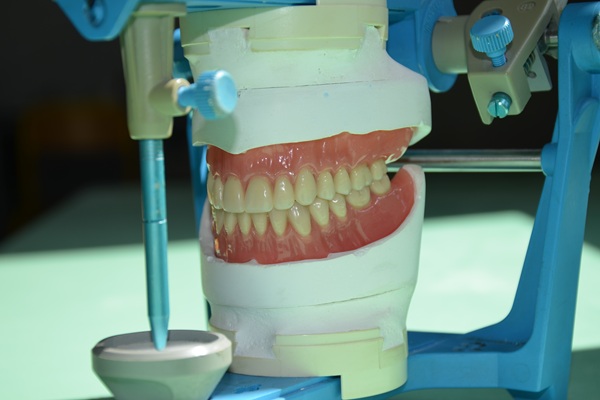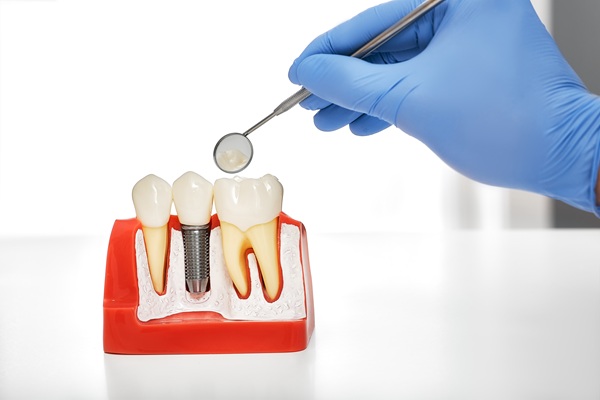Periodontal Disease: The Dental Health Menace in Babylon

If a dentist in Babylon has diagnosed periodontal disease, then you are not alone. According to the National Health Institute, up to 80 percent of American adults are suffering from one form of the disease.
Gum disease can occur as minor gum inflammation or a severe condition that causes significant damages to the soft tissues and jawbones supporting the teeth. In the worst situations, the disease could cause tooth loss.
Gum disease is a dental health menace. Multiple studies suggest that there could be possible health consequences of gum disease on the body beyond the oral cavity. A patient’s level of oral care typically determines the severity of the disease.
The cause of periodontal disease
The mouth is the home of millions of bacteria. These bacteria feed on sugar and carbs to form sticky, transparent plaque on the teeth. Regular brushing and flossing can clean plaque. However, once it accumulates and hardens into tartar, only a dental professional will be able to clean it.
Gingivitis
The longer plaque and calculus stay on the teeth, the more damaging they get. The bacterial plaque causes gum inflammation, which marks the initial stage of gum diseases, called “gingivitis.” Gingivitis causes the gum to turn red and swollen and bleed. It is reversible through regular flossing and brushing, as well as routine cleaning by the dental hygienist. This type of periodontal disease does not cause bone or tissue loss.
Periodontitis
Untreated gingivitis advances to periodontitis. Once the periodontal disease reaches this stage, the gums start to pull away to create pockets around the teeth. The body will attempt to fight the bacteria as the plaque spreads below the gum line. The infection eventually destroys the bones and connective tissues that hold the teeth in position. Soon, the teeth may come loose and may need to be extracted.
Risk factors of gum disease include poor oral care, tobacco use, pregnancy, diabetes and using certain medications that cause dry mouth, which could cause gum disease. Therefore, brushing and flossing twice daily is necessary to maintain proper oral health.
Evidently, gum disease is a menace to your smile and dental health.
Treating periodontal disease
The primary objective of treatment is to curb the infection. The method of treatment will depend on the severity of the condition. All treatments demand excellent oral care at home. Also, lifestyle adjustments may be necessary, such as quitting the use of tobacco, to improve the treatment results.
Deep cleaning (scaling and root planing)
This procedure can be performed by the dentist, periodontist or dental hygienist. Scaling entails scraping off calculus or plaque buildup with dental tools. Root planing is done to eliminate rough spots on the tooth root where bacteria and other germs stay. The dentist may recommend medications to help with recovery.
Final note
Surgical treatment may be necessary in advanced cases of gum diseases. However, prevention is the best way to fight gum disease. Aside from your routine dental care practices, ensure that you visit the dentist regularly for checkup and cleaning. This will help keep your oral cavity safe from the menace called periodontal disease.
Request an appointment here: https://www.babylonsmiles.com or call Edward Zeva D.M.D. at (631) 773-1094 for an appointment in our Babylon office.
Check out what others are saying about our services on Yelp: Read our Yelp reviews.
Recent Posts
It is important to adjust dentures when they cause concerns to help ensure the issues are resolved and to avoid more severe concerns and the need for denture replacement. Denture adjustments may be necessary when your dentures do not fit properly, experience minor damage, or are outdated and worn down.A denture adjustment involves minor improvements…
Looking for information on implant dentistry? Whether only a few teeth or the complete row of teeth are missing, implant dentistry might be the best choice to restore the natural function and appearance of the smile. Before starting any major dental procedure, you would probably have many questions. This article provides answers to some of…
Many parents often forget the need to get a kid friendly dentist when choosing a dentist for their children. A kid friendly dentist offers additional benefits that are not available from a regular dentist's office. Some might also get confused when they encounter pediatric dentists and wonder if there is any difference. Pediatric dentists also…
Clear braces are becoming more common among patients of all ages. In past years, orthodontists chose traditional metal braces to straighten crooked teeth. However, there are advantages to using clear options instead. If you do not want your orthodontic treatment to hinder your smile, you should not have to worry. Repair your teeth without anyone…


